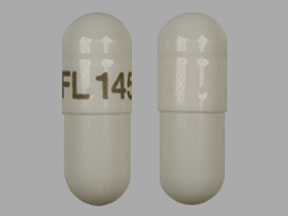Linaclotide Dosage
Medically reviewed by Drugs.com. Last updated on Sep 23, 2024.
Applies to the following strengths: 145 mcg; 290 mcg; 72 mcg
Usual Adult Dose for:
Additional dosage information:
Usual Adult Dose for Irritable Bowel Syndrome
290 mcg orally once a day
Comments:
- Patients should take this drug on an empty stomach, at least 30 minutes prior to the first meal of the day.
- Capsules should be swallowed whole; patients should avoid breaking apart or chewing the capsules.
- Patients with swallowing difficulties may open the capsules and administer orally (in applesauce or water) OR via nasogastric or gastrostomy tube (in water).
Use: Treatment of irritable bowel syndrome with constipation (IBS-C)
Usual Adult Dose for Constipation
145 mcg orally once a day
Comments:
- Some patients may be given 72 mcg orally once a day based on individual characteristics and tolerability.
- Patients should take this drug on an empty stomach, at least 30 minutes prior to the first meal of the day.
- Capsules should be swallowed whole; patients should avoid breaking apart or chewing the capsules.
- Patients with swallowing difficulties may open the capsules and administer orally (in applesauce or water) OR via nasogastric or gastrostomy tube (in water).
Use: Treatment of chronic idiopathic constipation (CIC)
Renal Dose Adjustments
Data not available
Liver Dose Adjustments
Data not available
Precautions
CONTRAINDICATIONS:
- Patients with known/suspected mechanical gastrointestinal obstruction
- Pediatric patients younger than 6 years of age
US BOXED WARNINGS:
RISK OF SERIOUS DEHYDRATION IN PEDIATRIC PATIENTS:
- In nonclinical studies in neonatal mice, administration of a single, clinically relevant adult oral dose of this drug caused deaths due to dehydration.
- The safety and effectiveness of this drug have not been established in patients less than 18 years of age.
- This drug is contraindicated in patients younger than 6 years of age.
- Avoid the use of this drug in patients 6 years to less than 18 years of age.
Safety and efficacy have not been established in patients younger than 18 years; this drug is not recommended for use in these patients.
Consult WARNINGS section for additional precautions.
Dialysis
Data not available
Other Comments
Administration advice:
- This drug should be taken 30 minutes prior to a meal.
Storage requirements:
- Keep in original bottle to protect from moisture.
Reconstitution/preparation techniques:
- The manufacturer product information should be consulted.
Monitoring:
- GASTROINTESTINAL: Unusual/severe abdominal pain, severe diarrhea
Patient advice:
- Patients should be instructed to seek medical attention for unusual or severe abdominal pain, especially with bright red or black stools.
- Advise patients to speak to their healthcare provider if they become pregnant, intend to become pregnant, or are breastfeeding.
Frequently asked questions
More about linaclotide
- Check interactions
- Compare alternatives
- Reviews (936)
- Side effects
- During pregnancy
- Drug class: guanylate cyclase-C agonists
- Breastfeeding
- En español
Patient resources
Other brands
Professional resources
Other brands
Related treatment guides
See also:
Further information
Always consult your healthcare provider to ensure the information displayed on this page applies to your personal circumstances.


